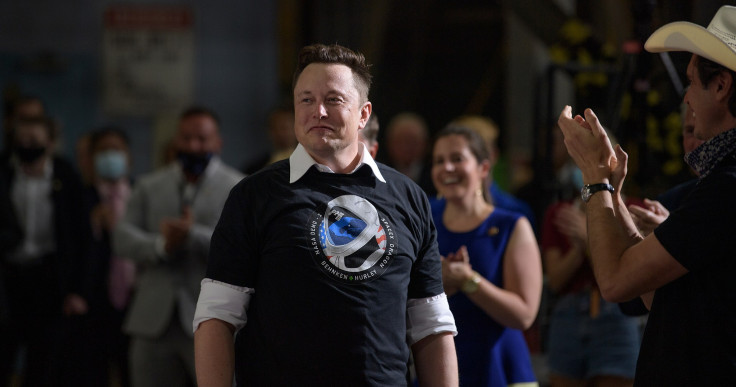Why Is Viral 'Cards Against Humanity' Suing Elon Musk's SpaceX For $15M? What You Need To Know
A photograph depicts equipment that does not belong to Cards Against Humanity on the company's property

In a surprising twist, the popular card game Cards Against Humanity is now embroiled in a legal battle with Elon Musk's SpaceX over property rights near the company's Starbase launch facility in Texas.
In 2017, the adult party game Cards Against Humanity purchased land on the US-Mexico border to interfere with former President Donald Trump's proposed border wall. Now, the company is taking legal action against another controversial billionaire who has reportedly occupied the property without authorisation.
Cards Against Humanity's Legal Gamble
The popular card game publisher, Chicago-based Cards Against Humanity LLC, filed a $15 million lawsuit on Thursday against Elon Musk's SpaceX, accusing the aerospace company of trespassing on its property in Cameron County, Texas.
Although Cards Against Humanity's property was unoccupied at the time of purchase, the lawsuit alleges that SpaceX began trespassing on the land, which is situated only three miles from the company's Starbase launch facility. The legal documents include images of a construction site and equipment.
"SpaceX has never asked for permission to use the Property, much less for the egregious appropriation of the Property for its own profit-making purposes," the lawsuit states. According to the lawsuit, SpaceX contractors have trespassed onto the property, dumping large piles of gravel and installing generators to power equipment and lighting.
In 2017, Cards Against Humanity LLC announced that its crowdfunded project aimed to make the border wall construction as time-consuming and expensive as possible. SpaceX started development in the area in 2014.
In July, Musk tweeted that he would relocate SpaceX's headquarters from Hawthorne, California, to Starbase, Texas, a company town that is still under construction. In response to Musk's announcement, San Francisco City Attorney David Chiu expressed relief, stating, "I share the perspective that most San Franciscans have, which is good riddance."
The card game, which is known for its topical humour, features both Musk and Trump. According to CAH, the lawsuit aligns with the game company's business philosophy. The company claims that allowing Musk's company to "essentially steal the property from CAH without remorse or even explanation" would harm its reputation among its supporters.
"CAH supporters have developed unprecedented loyalty, as well as expectations that the company will live up to its persona as politically active — especially regarding abusive tactics by government and wealthy businesses against regular people around the country and the world," the lawsuit stated.
FAA Defends SpaceX Fine
To SpaceX's relief, someone is taking a more sympathetic approach than Cards Against Humanity. The head of the Federal Aviation Administration (FAA) has defended its proposed $633,000 fine against the Musk-led astronautics company for violating agency regulations before launches in June and July 2023.
"They launched without a permit," FAA Administrator Mike Whitaker said at a U.S. House subcommittee defending the fine. "It's the only tool we have to get compliance on safety matters." Whitaker also defended a delay of forthcoming launches, according to a report by Reuters.
Last week, Musk accused FAA leaders of penalising SpaceX "for petty matters that have nothing to do with safety while neglecting real safety issues at Boeing. This is deeply wrong and puts human lives at risk."
"SpaceX is the safest, most reliable launch provider in the world and is absolutely committed to safety in all operations," the company said in a statement. The FAA stated that SpaceX's violations included a failure to obtain approval to modify the communications plan associated with its license for the June 2023 launch of a rocket carrying an Indonesian telecommunications satellite.
Whitaker also defended the delay of the upcoming Starship 5 launch, citing SpaceX's failure to complete a timely sonic boom analysis. The FAA announced this month that it did not anticipate a decision on a license before late November.
"The delay of the Starship (launch) had to do with SpaceX filing an application and not disclosing that they were in violation of Texas and federal law on some matters, and that's a requirement to get a permit," Whitaker said.
When asked how SpaceX could accelerate the launch, Whitaker responded: "Complying with the regulations would be the best path."
© Copyright IBTimes 2025. All rights reserved.






















